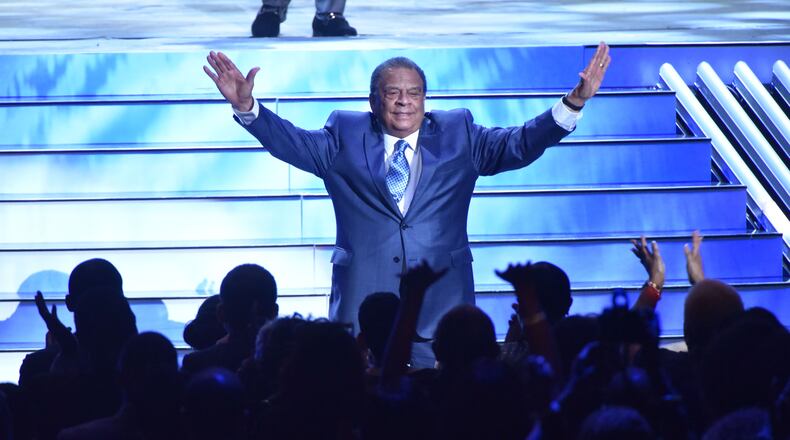Former Atlanta Mayor and U.N. Ambassador Andrew Young has written a letter in support of the Gulch development as City Council prepares for a potential Monday vote on a possible $1.75 billion public financing package for the deal.
In the letter, Young compared the $5 billion mixed-use development proposal’s city-shaping potential to Atlanta’s quest for the 1996 Summer Olympic Games.
“There were those, including some cynical voices in town, who doubted our bid to host the Olympic Games,” he wrote. “But then, just as now, I trusted in the greatness of this city and in her people. Atlanta is a world-class city, but that privilege requires constant re-investment and re-invention.”
VIDEO: Previous coverage on this issue
The Gulch proposal faces an uncertain future, and it's unclear if Mayor Keisha Lance Bottoms has the eight votes needed to win council approval. Bottoms was forced to delay a vote on the deal last month.
But her office and Gulch allies have been rallying the business and civic communities to back the deal.
The proposal calls for future sales and property taxes created within the Gulch development to help fund its construction.
Proponents of the Gulch say the public money is needed to build costly infrastructure to make development feasible. They say the risk of failure falls to the developer, which would be on the hook if future tax revenues fail to repay the bond debt. The project, they say, requires no current city revenues.
The council previously balked at the proposal and expressed reservations about forgoing three decades of sales and property tax revenues to be created on the site.
Others worry about the potential strain of the development on city resources.
RELATED CONTENT: GULCH PROJECT
Some council members and critics of the deal say promises of affordable housing and other proposed public benefits don’t match the substantial taxpayer contribution. And they say sales and development that might occur in the other parts of the city will instead happen in the Gulch, diverting revenue needed to help manage growth.
In his letter, Young touted promises for affordable housing and said the project would help transform “a 40-acre barren asphalt wasteland in the heart of downtown.”
“Reinventing the Gulch into a dynamic, thriving cityscape of housing, retail and offices involves great risk, perhaps costing over $5 billion,” he said. “Mayor Bottoms has negotiated a thoughtful incentive package that requires no out-of-pocket contributions from taxpayers.”
About the Author
Keep Reading
The Latest
Featured



